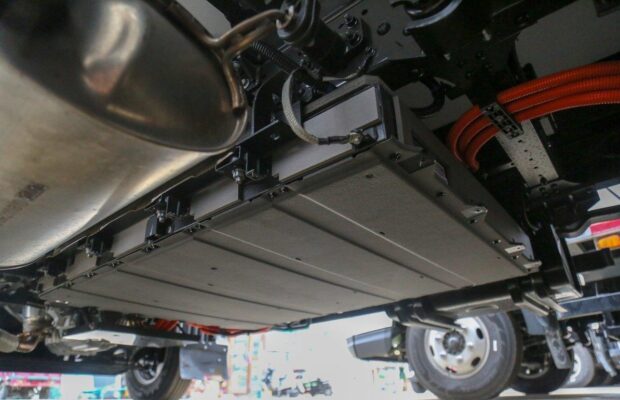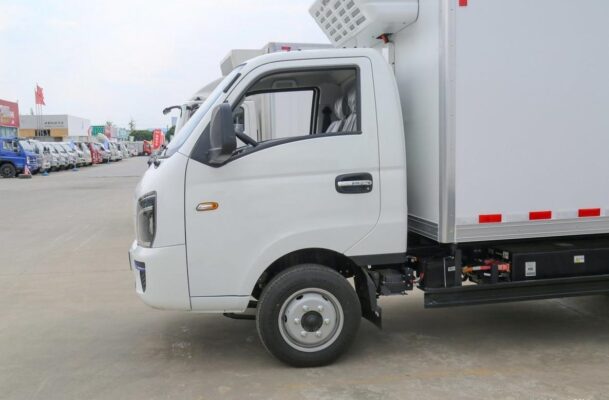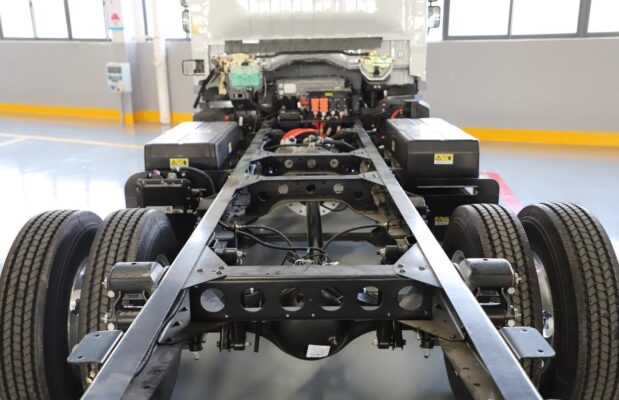Electric Truck Knowledge
What is the Process of Renting a New Energy Freight Vehicle?
Posted on by Electric Trucks
In the present day, an increasing number of individuals are expressing an interest in renting a new energy freight vehicle. But do you truly have a clear understanding of what the rental process entails? I suspect that many of you might be in the dark. Now, I shall walk you through the process of renting a new energy freight vehicle and sincerely hope it proves beneficial to you.
The very first step is to determine the intention to lease. At the outset, both the lessee and the lessor need to engage in thorough communication. It is essential to clearly delineate the leasing requirements, encompassing aspects such as the duration of the lease, the intended usage of the vehicle, the expected mileage, and any specific features or capabilities desired. Only after a mutual understanding and firm determination of the lease intention can the process proceed smoothly. Once the intention is established, the lessor will then guide you to inspect the new energy freight vehicle and provide a detailed introduction to its characteristics and specifications. This might include details about the vehicle’s battery range, charging time, payload capacity, and any advanced technological features or safety equipment installed.

Following this, the next crucial step is to sign the lease contract. This is a pivotal stage as it serves to safeguard the rights and interests of both parties involved. The lease contract should contain comprehensive and unambiguous terms and conditions. It should clearly outline the rental period, including the start and end dates, the rental fee and payment schedule, whether there is a deposit required and the terms of its refund, any maintenance and repair responsibilities, insurance coverage details, and stipulations regarding the return of the vehicle at the end of the lease term. Additionally, it should address potential scenarios such as early termination of the lease, damage or breakdown of the vehicle during the rental period, and any penalties or additional charges that might apply. Careful review and understanding of the contract before signing are of utmost importance to avoid any future disputes or misunderstandings.
After the contractual formalities are completed, the on-site vehicle delivery process commences. This is an opportunity for you to have a hands-on experience with the vehicle. You can inspect its exterior and interior condition, test the various functions and controls, and even take it for a short test drive to assess its performance, handling, and comfort. It’s advisable to pay close attention to details such as the vehicle’s braking system, acceleration, steering response, and the functionality of any onboard equipment or accessories. If any concerns or questions arise during this inspection, it’s essential to address them with the lessor immediately.

Subsequently, the driver is required to provide relevant identification documents. Typically, this includes presenting a valid ID card and driver’s license. These documents serve to verify the driver’s identity and qualifications, ensuring that they possess the legal right and competence to operate the rented new energy freight vehicle. Once the verification is completed and the documents are in order, the driver can then take possession of the vehicle and embark on their transportation tasks. However, it must be emphasized that safe driving is of paramount importance at all times.
It is important to note that the rental process might also involve additional steps or considerations depending on the specific policies of the leasing company and local regulations. For instance, some companies might conduct a credit check or require additional forms of documentation. There might also be specific insurance requirements or stipulations regarding the use of the vehicle in certain geographical areas or for certain types of cargo.

In conclusion, renting a new energy freight vehicle involves a series of well-defined and sequential steps. By understanding and adhering to these processes, both the lessee and the lessor can ensure a smooth and mutually beneficial rental experience. I sincerely hope that the knowledge I have shared provides you with a clear and comprehensive understanding of the rental process.
As the new energy vehicle market continues to expand and evolve, it’s likely that the rental processes will become even more streamlined and standardized. Keeping abreast of the latest industry developments and regulatory changes will be crucial for those considering renting new energy freight vehicles in the future.